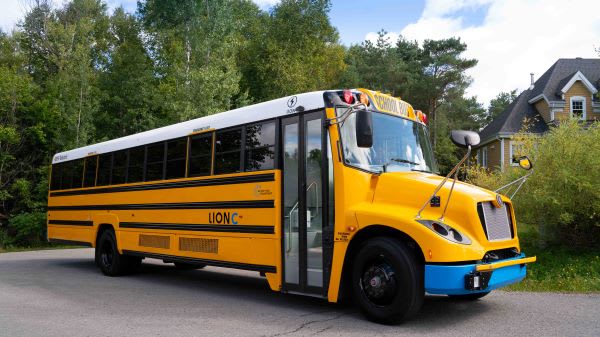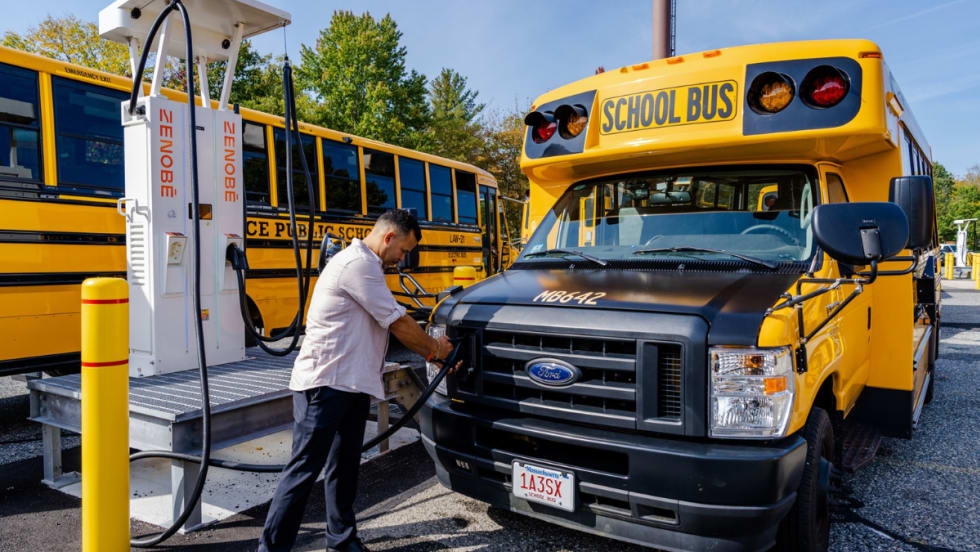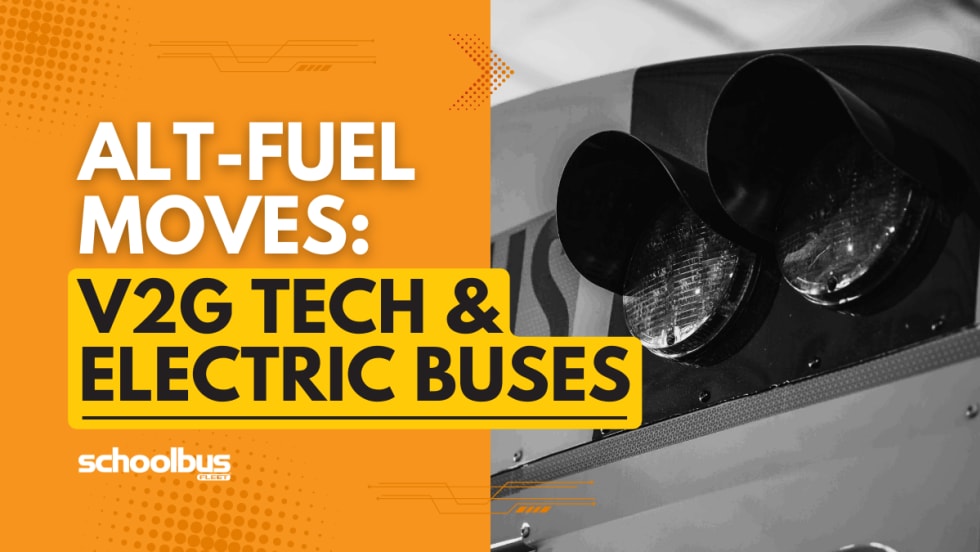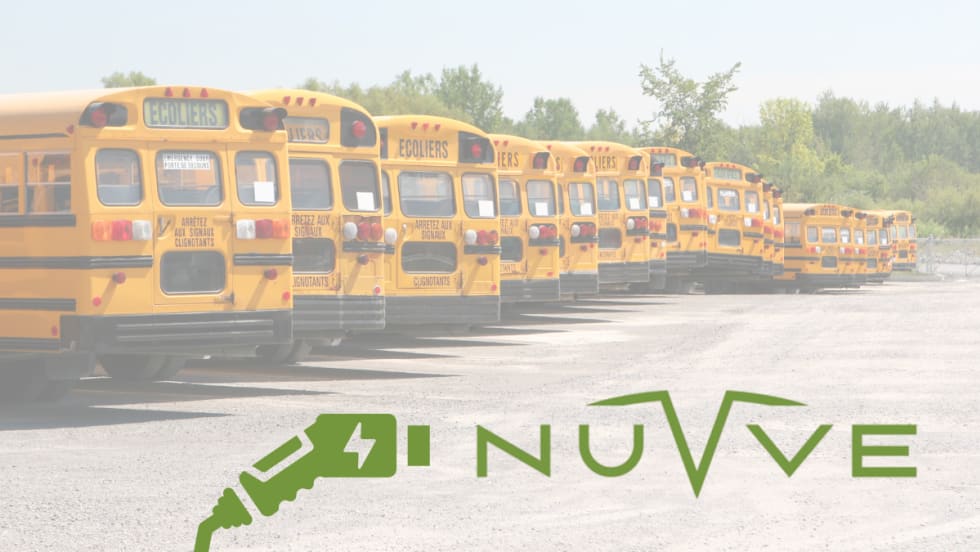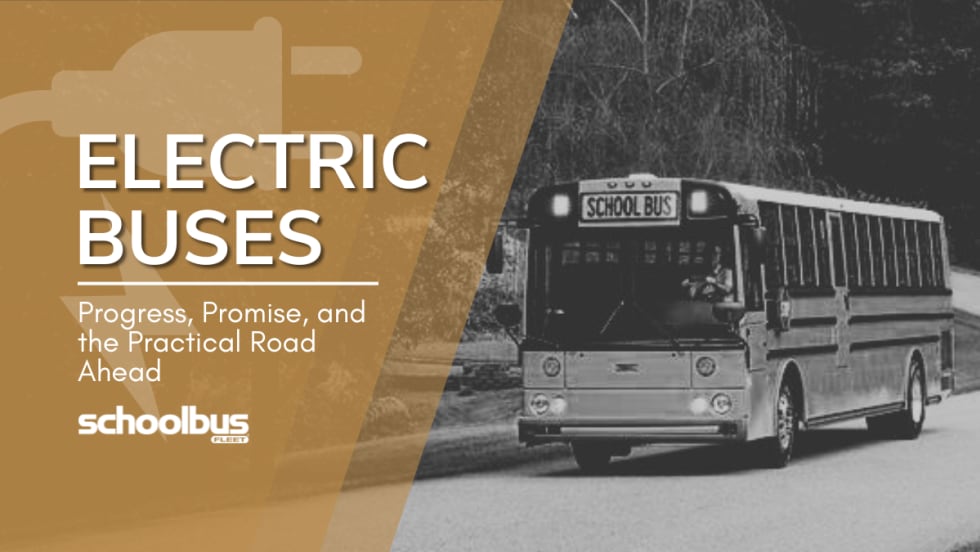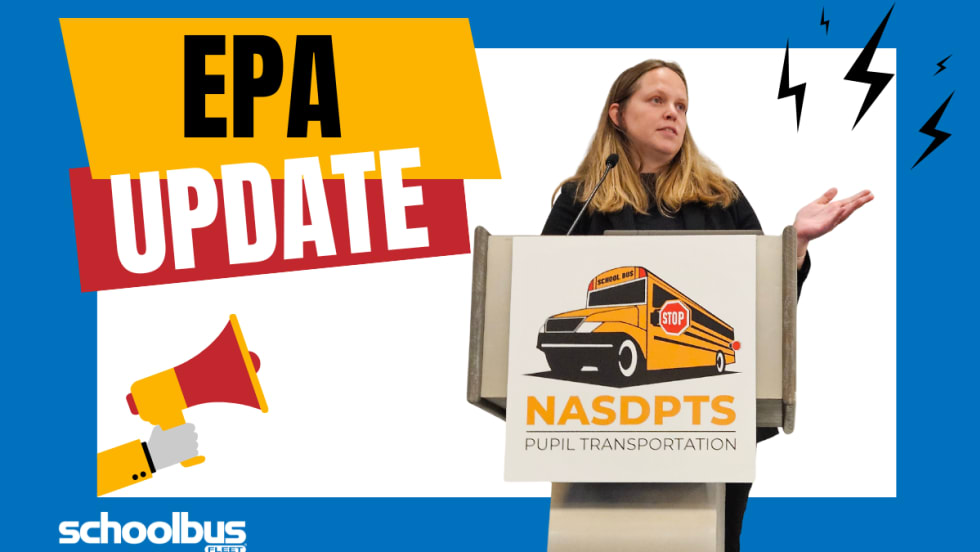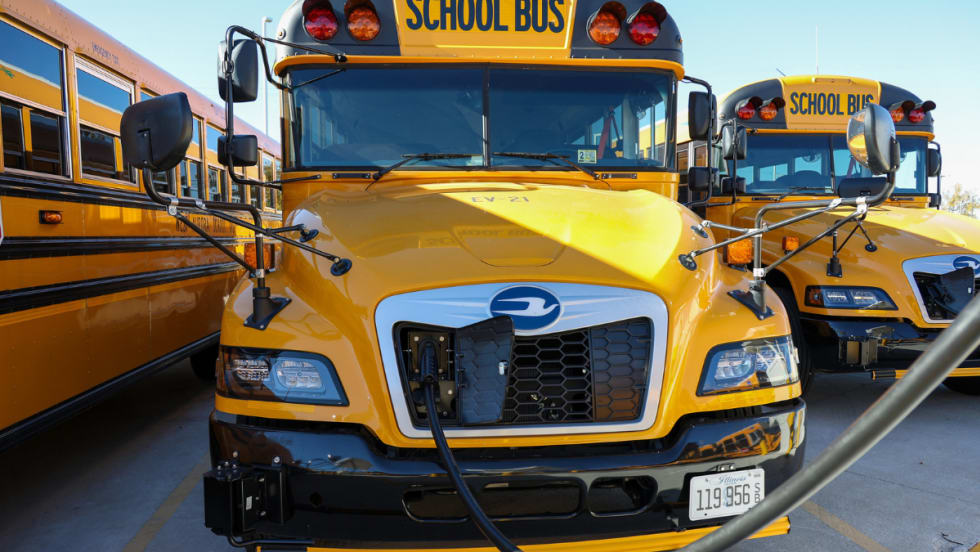Electric vehicle (EV) manufacturer The Lion Electric Co. is partnering with green energy technology company Nuvve Corp. to launch vehicle-to-grid (V2G) technology as a standard feature on its zero-emission school buses.
With this collaboration, Lion’s electric buses — the LionC, LionD, and LionA — and Nuvve’s V2G technology will be fully integrated, according to a news release from the companies. This will enable the batteries of Lion’s vehicles to store and discharge energy when plugged in and controlled by Nuvve’s software platform.
Nuvve and Lion Electric have already partnered on projects demonstrating the feasibility of V2G for school districts and utilities in California and New York. A joint project in White Plains, N.Y., is currently in operation with bidirectional power flow.
“We have been designing around V2G implementation on our platforms so as to provide our customers with the most advanced technology currently available,” said Marc Bédard, CEO and founder of Lion Electric. “Nuvve brings its cutting edge and experienced aggregation platform to complement our robust product offering, giving our customers added value in the process.”
Nuvve has over 10 years of experience in V2G projects and deployments with operations across four continents providing several levels of services. V2G is designed to enable a more efficient use of energy on the site at which the vehicles are parked by intelligently managing the loads of energy in conjunction with local buildings.
Another benefit of V2G: customers can save money through reduced energy costs since EVs can be charged when electricity demand is low and costs are optimized. Additionally, Nuvve’s V2G platform offers specialized aggregation services that pool together the collective energy stored in the batteries of multiple EVs to create a virtual power plant (VPP). From this VPP, energy and power can be sold on energy markets, both at the local level and at the system level, creating additional savings.
Energy storage has been identified as a key requirement to increase the amount of renewable energy integrated onto electric grids to buffer intermittent wind and solar production and contribute power to the grid at times when it is most needed, according to the companies. The ability to create more resilient energy grids is a cornerstone of increasingly relying on renewable sources and can stave off catastrophic energy shortages when faced with dramatic events like the ones recently witnessed in California that led to rolling blackouts.
“Lion’s modular platform approach to designing electric vehicles provides an ideal basis for integrating V2G and enabling all of their medium and heavy vehicles to serve new purposes such as providing grid services,” said Gregory Poilasne, CEO and chairman of Nuvve. “There are many use cases for vehicles like school buses, delivery fleets, and refuse trucks that are parked for many hours during the day and overnight that make their batteries ideal for what V2G can do to stabilize the grid.”



